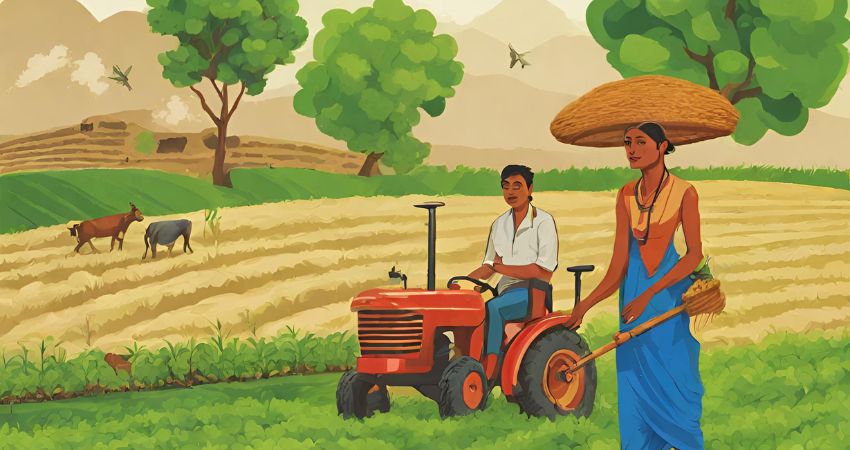Introduction
Pesticides play a significant role in modern agriculture, aiding in pest control and maximizing crop yields. However, the widespread and indiscriminate use of pesticides in Indian farming raises concerns about environmental sustainability, human health, and food safety. This blog delves into the complexities surrounding the use of pesticides in Indian agriculture, shedding light on its implications and exploring potential alternatives.
The Pesticide Predicament:
- Overview of pesticide usage trends in Indian agriculture.
- Factors driving the reliance on pesticides, including pest pressure, monoculture farming, and economic incentives.
- Concerns about pesticide residues in food, water contamination, and adverse effects on human health and biodiversity.
Environmental Impact
- Pesticide runoff and contamination of soil, water bodies, and aquatic ecosystems.
- Disruption of natural predator-prey relationships and unintended harm to non-target organisms.
- Soil degradation, loss of soil fertility, and long-term ecological consequences of pesticide use
Human Health Concerns
- Health risks associated with pesticide exposure among farmers, farmworkers, and consumers.
- Acute and chronic health effects of pesticide poisoning, including respiratory problems, neurological disorders, and reproductive issues.
- Vulnerability of children, pregnant women, and communities residing near agricultural areas to pesticide-related health hazards.
Regulatory Framework and Challenges
- Overview of pesticide regulations and governance mechanisms in India.
- Challenges in enforcement, monitoring, and compliance with pesticide safety standards.
- Need for stringent regulation, transparency, and accountability to safeguard public health and environmental integrity.
Alternatives and Sustainable Practices
- Integrated Pest Management (IPM) approaches to minimize pesticide use and promote ecological pest control methods.
- Adoption of organic farming practices, crop diversification, and agroecological principles to reduce reliance on pesticides.
- Capacity building, farmer education, and support for sustainable agricultural practices to foster resilience and food security.
Reducing Pesticide Dependency in Indian Farming
The overreliance on pesticides in Indian agriculture poses significant challenges to environmental sustainability, human health, and food safety. However, there are viable alternatives to conventional pesticide use that promote ecological balance, minimize harm to non-target organisms, and safeguard public health. This blog explores sustainable alternatives to pesticides in Indian farming, highlighting innovative approaches to pest management and ecological resilience.
Integrated Pest Management (IPM)
PM is a holistic approach to pest management that emphasizes preventive measures, biological control, and cultural practices to minimize pesticide use.
Biopesticides
Biopesticides are derived from natural sources such as plants, microbes, and insects, offering effective pest control with minimal environmental impact.
Neem-Based Products
Neem-based pesticides, derived from the neem tree (Azadirachta indica), have been used for centuries in India for pest control.
Plant-Based Pest Repellents
Certain plant species possess natural repellent properties that deter pests and protect crops from damage.
The widespread use of pesticides in Indian farming has profound impacts on both soil health and human health. Here’s how:
Impact on Soil:
- Soil Degradation
- Microbial Imbalance
- Soil Contamination
- Impact on Beneficial Organisms
Impact on Health
- Human Exposure
- Health Risks
- Food Safety Concerns
- Pesticide Resistance
Conclusion:-
The use of pesticides in Indian farming is a complex issue with far-reaching implications for the environment, public health, and food security. As we confront the challenges posed by pesticide dependence, it is imperative to prioritize sustainable and resilient agricultural practices that minimize harm to ecosystems and human well-being. By embracing alternatives such as integrated pest management, organic farming, and agroecological approaches, we can pave the way towards a healthier, more sustainable future for Indian agriculture and society as a whole.

